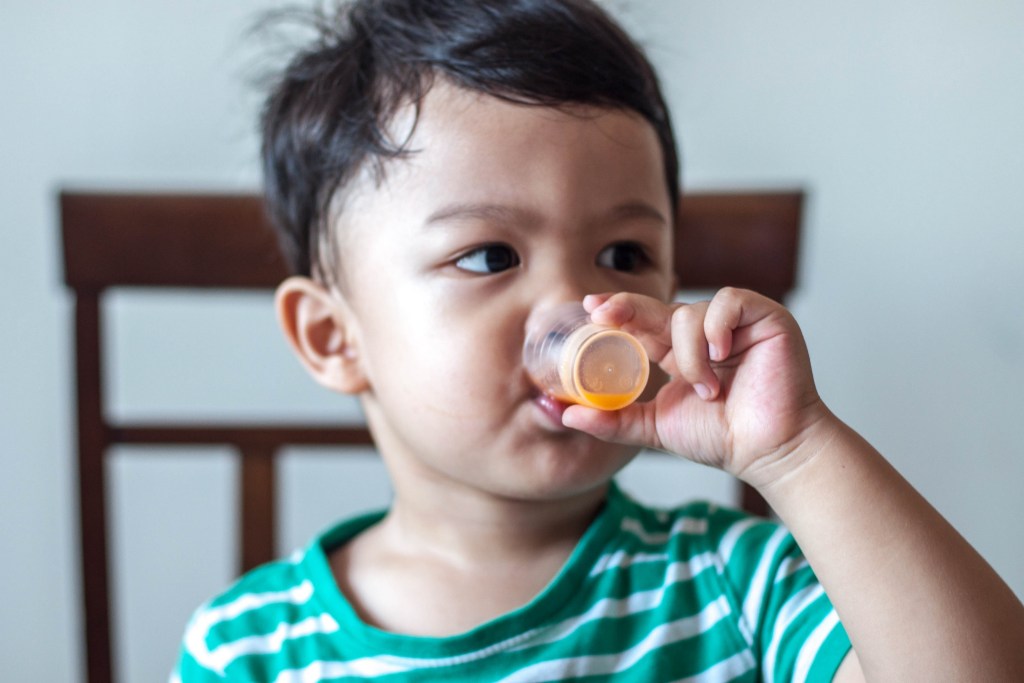
There’s nothing worse as a parent than having a sick child, except for having a sick child who refuses to take medicine. If you’ve ever watched your toddler immediately spit out a mouthful of medicine that you know will make them feel better, or refuse to open their mouth at all, then you can relate. Battling a sick toddler isn’t fun.
Unfortunately, kids are magnets for germs and sometimes it’s necessary to give them medicine to help them feel better. Having a sick toddler can mean sleepless nights not only for your child but for you as well, and medicine can often make them feel well enough to get the rest they need to recover. Thankfully, forums like Reddit exist where parents share their simple hacks to get toddlers to take medicine that you won’t believe you didn’t think of first. Keep reading to learn this easy hack to get kids to take medicine.
The juice pouch
Reddit can be a wealth of information when it comes to a lot of different things, including parenting hacks that can make your life easier. Redditor HootsWereHad recently posted a simple yet effective method to get a sick toddler to take cold medicine that involves nothing more than a delicious juice pouch.
In the short video, the poster brings a juice pouch to their little guy who is clearly feeling under the weather. However, instead of the straw inserted into the juice pouch, the straw is actually in a dosage cup of medicine he’s holding beside the juice pouch. The toddler doesn’t realize he isn’t drinking the juice and proceeds to drink the entire dose of medicine without incident!
Foolproof?
Others quickly took to the comments section to share their thoughts, with many applauding the poster for their quick thinking, even though a few weren’t convinced the little boy was fooled by the ruse at all! Some were quick to point out how they never have any issues getting their toddler to take medicine, which is precisely what any frazzled parent dealing with a sick child who refuses to down that dropper of meds needs to hear.
Commenters also shared their own hacks, including adding the medicine to applesauce, yogurt, or electrolyte replacement drinks. One thing everyone seemed to agree on was that the little guy in the video looked like he really wasn’t feeling great and he could definitely benefit from that medicine his dad was able to get him to finally take.

Being a parent means you sometimes have to get a bit creative, especially when it comes to sick toddlers who seem to get extra toddler-y when they don’t feel well. Hopefully, this hack will come in handy the next time you have to convince a whining, irritable toddler that they’ll feel much better if they just take their medicine and it won’t cause any trust issues as they get older!



